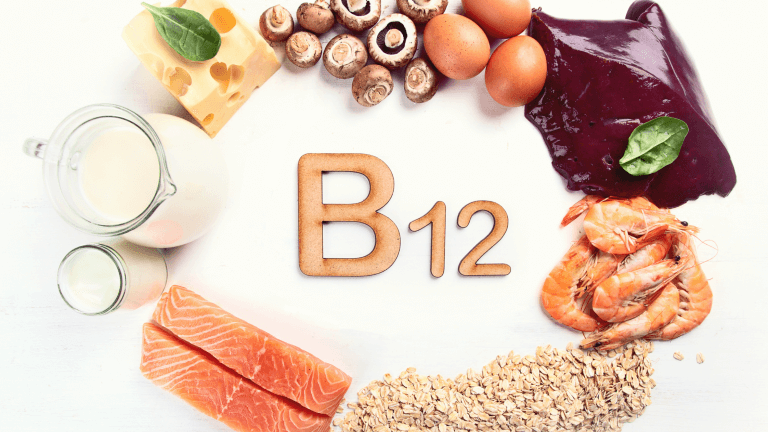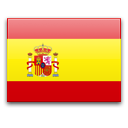B12: The all-rounder among the vitamins!
B12 is one of the most important nutrients our body needs. Also known as "cobalamin", the vitamin can be stored in the human liver for several years. It is not only important for the formation of red blood cells, but also helps you feel good. But what happens if your B12 level is too low? Which foods contain particularly high levels of cobalamin? And what else is worth knowing about vitamin B12? Find out in this article!
The daily requirement for adults is 4 µg.
To ensure that you are always able to perform, are not constantly plagued by infections and do not keep forgetting important things, a sufficiently high level of vitamin B12 is necessary. The daily requirement depends on your age as well as whether you are pregnant or breastfeeding your child. According to the German Nutrition Society (DGE), adults between the ages of 25 and 50 need 4 µg of vitamin B12 per day. If the intake remains below this value, it can lead to disturbances in cell metabolism, blood formation and the nervous system. As an important part of the metabolic process, vitamin B12 helps to convert nutrients from food so that they can be used by the body. If there is a deficit here, the metabolism changes negatively and we not only feel tired, but may even gain weight.
Too little vitamin B12 can lead to anaemia.
If the body's own B12 production does not function or if too little of this vitamin is taken in generally, there is a risk of anaemia. This is because B12 is indispensable for the formation of red blood cells. However, since the symptoms that occur with a B12 deficiency can also have other causes, it is not always easy to determine the vitamin deficiency with certainty. Thus, a B12 deficiency may remain undetected for a long time.
Symptoms of vitamin B12 deficiency include:
- Tiredness and fatigue- Weakness- Torn corners of the mouth- Burning of the tongue- Mental problems such as depression and changes in character.
B12 from food: These foods are recommended.
To ensure that you get enough vitamin B12 from your diet, a number of foods are particularly recommended. These include, among others:
- Fish and seafood.
- Eggs- Meat (especially liver!).
- Seafood- Milk and cheese.
In general, foods of animal origin contain a lot of vitamin B12.
Are you in the risk group for B12 deficiency?
Some people belong to the risk group for a B12 deficiency. Besides patients with certain intestinal diseases, vegans are particularly affected. Since vegans do not consume any animal foods at all, they often experience more or less pronounced deficiency symptoms.
These can possibly be treated - after medical advice and appropriate monitoring - with B12 tablets or injections. Certain drinks may also be a way for vegans to absorb more B12. These include, for example, oat, soy or rice drinks. However, not all drinks in this category are actually B12 suppliers, so it makes sense to study the contents of the respective products carefully.
What did you think of the vitamin B12 article, and would you add anything else? We look forward to reading it. And don't forget to share if you liked it!





Leave a comment